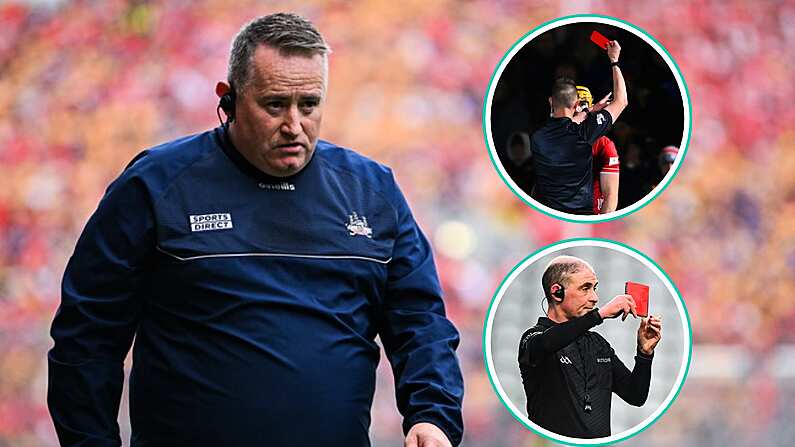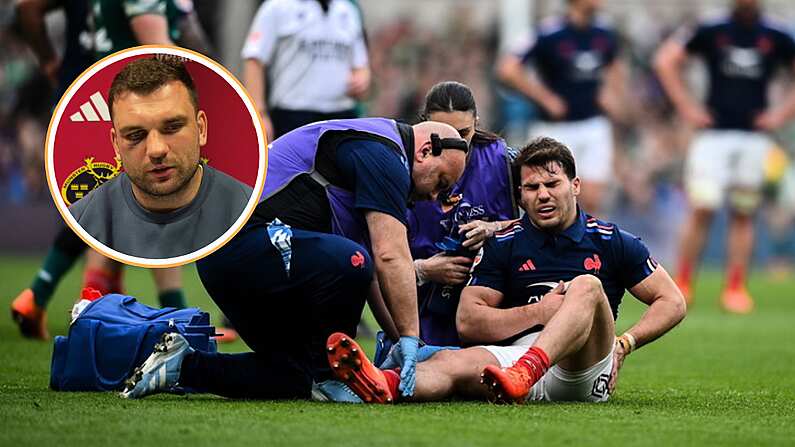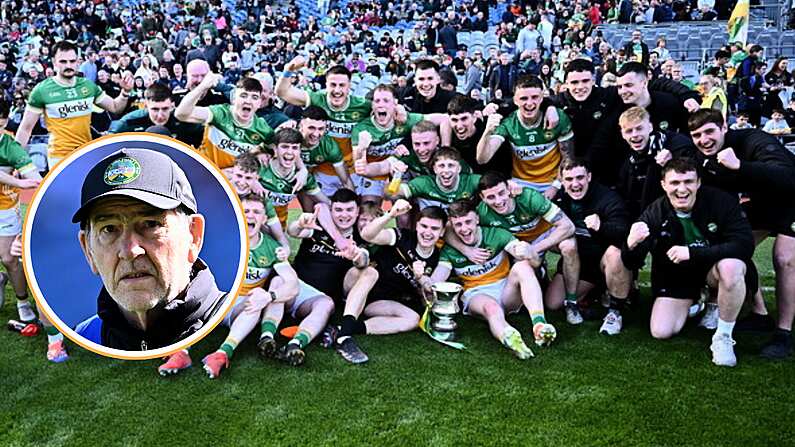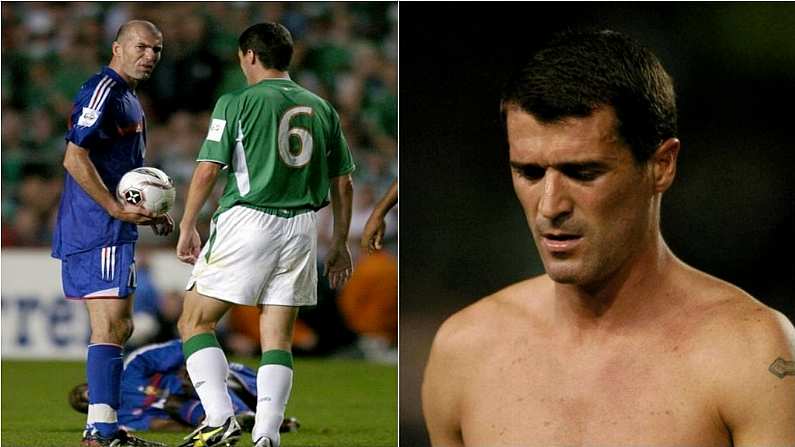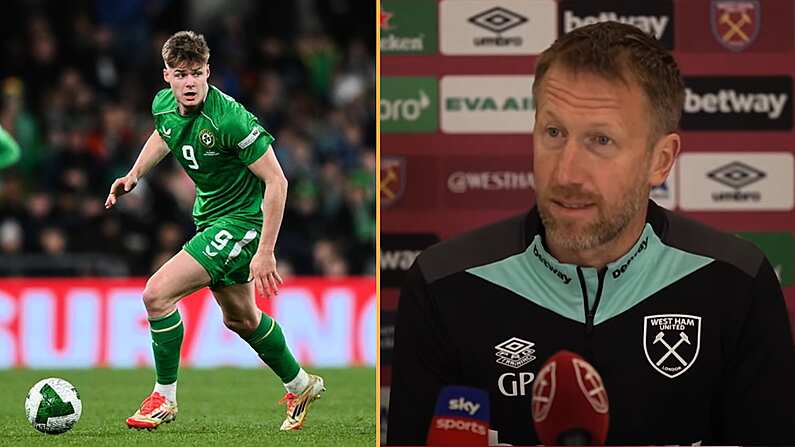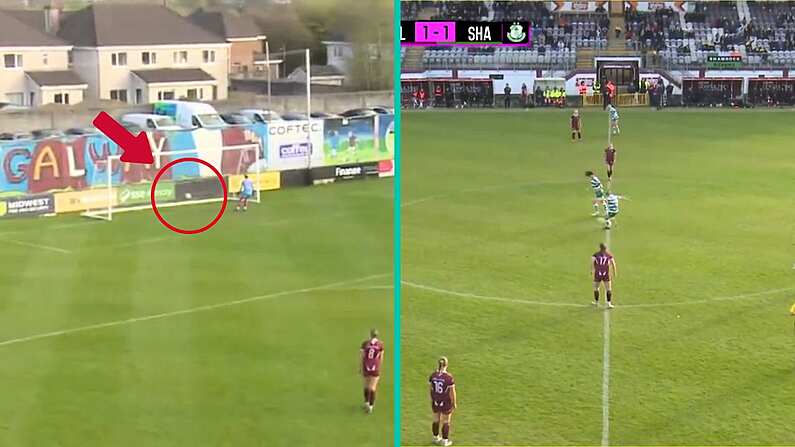Football matches at big break were the most important thing in life between the ages of 5 and 12. They were intensely fought, often lawless affairs in which winning was all that mattered and losers were nothing. And controversy and scandal was rife.
The dreaded 'Bull-toe' was against the canons of fair play
A blight on the game. 'Bull-toes' were generally frowned upon, if not always penalised.
The 'bull-toe' was a very powerful but rather crude and inelegant strike of a ball which was one of the chief means of scoring back in the day.
There was a 'Hail Mary' quality to the 'bull-toe' which many of the more cultured 10-year-olds disdained. Its chances of ending up in the goal or about fifty yards wide and in a neighbouring field were roughly equivalent.
Teams who conceded goals through 'bull-toes' tended to be exceedingly bitter about it, sounding vaguely like Arsene Wenger after a defeat in West Brom or Stoke.
NOTE: There are geographical variations in the naming of this phenomenon. I am informed that closer to the eastern seaboard, the phrase 'bog-toe' is often used. A Bray colleague of mine even said that in his youth, the term 'toe-bog' was used.
'You had the better team' is a legitimate post-match complaint
At this level of the game, this response is not regarded as a gracious acknowledgement of the opposing team's superiority, but rather a complaint alleging iniquity and unfairness.
Perhaps something to bring before a governing body, if there was one.
Teams at this level are, to some degree, artificially constructed. At primary school level, there is an expectation that teams will be weighted fairly.
Contentious goals were decided with a penalty to the offensive side
Safely judging whether the ball went in the goal or hit the post was a treacherous and deeply controversial business.
The post, you see, was represented by an invisible line which sprang upward in the direct line from the jumpers which lay slumped on the ground.
Rare was the match which didn't end with a dispute over whether a certain shot went 'over the post' or went in the goal. The absence of a referee meant such arguments carried on ad nauseum very often resulting in the game being abandoned fifteen minutes before the end of big break.
Usually, they would spill into class-time, with the teacher bringing the debate to a close by shrieking her lungs out at the one lad whose passion for remonstration had led him to leave his seat vacant for longer than was reasonable.
Such controversies were often settled by the 'penalty or goal' offer. This was usually put forth by the attacking team. Depending on the plausibility of their case, the defending team would either accept the offer or rule it out of order.
Certain unscrupulous attackers would scurrilously overplay their hand as a means of exploiting this particular rule. A colleague recalls one particular individual who would contest even the most glaring wides merely as a ruse to force the 'penalty or goal' question onto the agenda.
The most domineering personality usually acted as the unofficial and extremely biased referee
William Golding could have written a fine book about football matches in primary school.
Though not necessarily the best player (although, he could well have been), the most extroverted and intimidating boy in the class would invariably settle all controversies. Usually in a manner most congenial to his own team.
For he was not only an unofficial referee but an unofficial captain as well.
Whenever someone executed a daring slide tackle, this boy will decide whether he won the ball or not, usually reflecting upon whether the tackler was on his team before making his decision.
He won all arguments.
The offside rule was not applied but 'goal-hanging' was frowned upon
The offside rule was unworkable at this level.
Unable to rely upon legislation to curb goal-hanging, primary school kids fell back on the power of social stigmatisation. Goal-hanging was reviled and repeat goal hangers were deemed morally suspect.
Their goals often received ironic jeers and disgruntled muttering. Few were inclined to celebrate with them. Necessarily, goal hangers were often enviably unselfconscious and blessed with a thick skin. This meant they often celebrated their own goals with great exuberance, untroubled by the fact that no one else was celebrating with them.
The Millwall of primary school football. Nobody liked them and they didn't much care.
The worst player would be stuck in goal and then berated for being no good in goal
The universally regarded worst player in the class would usually be condemned to stand in goal. The problem here was that he typically showed no more flair for the position of goalkeeper than he did for any of the outfield positions for which he was so unsuited.
Empathy being a scarce commodity at big break, the boy's classmates showed little understanding for his predicament. Every time a goal flew past him he was subjected to a hail of abuse from his buck-passing teammates.
Regardless of any defensive mishaps that occurred in the lead-up to goal concessions, the blame would be placed squarely at this unfortunate's door.


